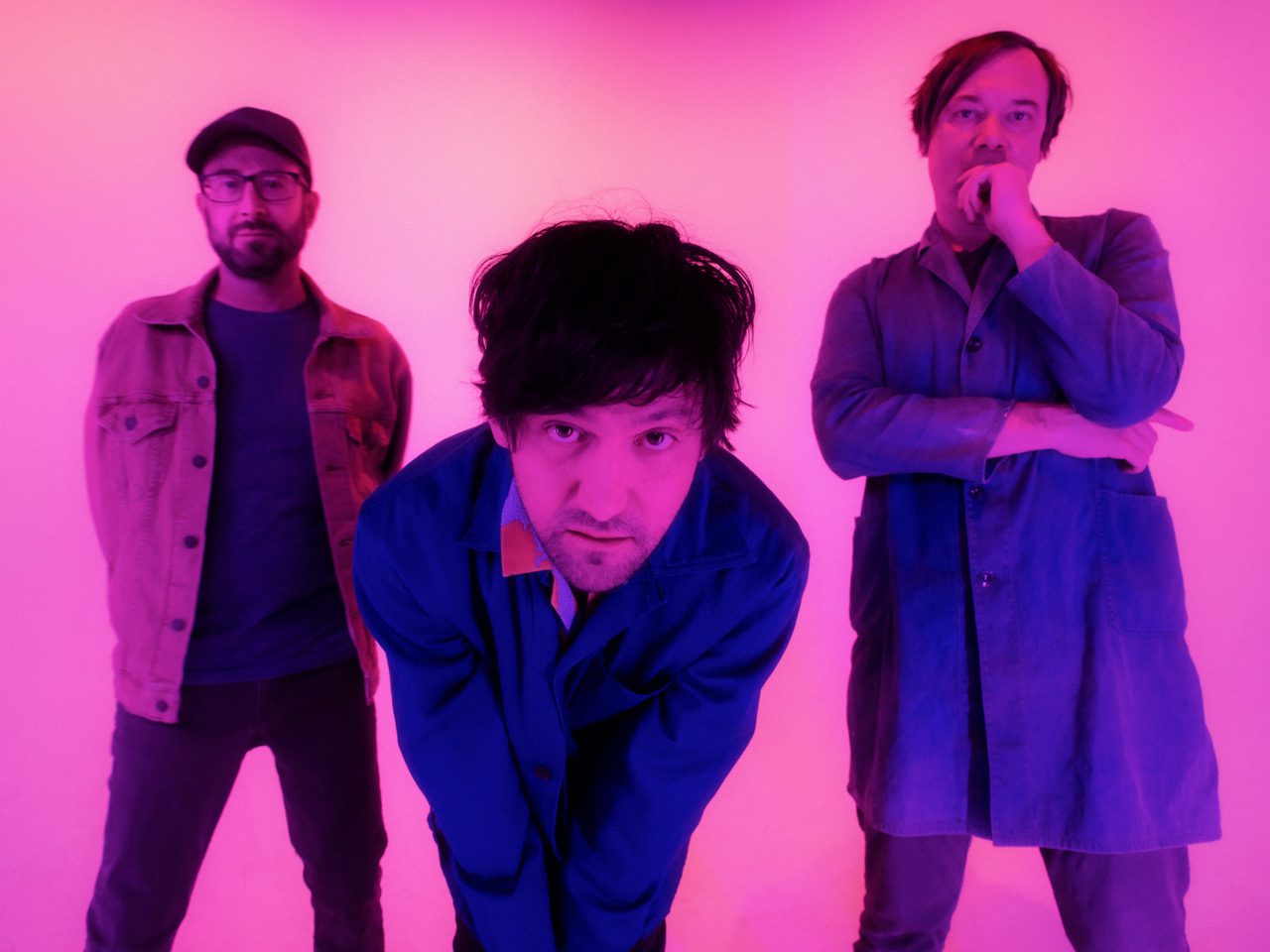SPOTLIGHT: Bright Eyes’ Nate Walcott on the Upside of Downtime

Bright Eyes: From left, Mike Mogis, Conor Oberst, and Nate Walcott (photo by Shawn Brackbill)
EDITOR’S NOTE: Bright Eyes is No Depression’s Spotlight band for August 2020. Read our feature story about the band — Conor Oberst, Mike Mogis, and Nate Walcott — and their new album, Down in the Weeds, Where the World Once Was, here. In the essay below, multi-instrumentalist Walcott talks about his earlier work with Bright Eyes, Oberst’s Mystic Valley Band, and more, and how he reframed his creative process after a tour for Bright Eyes’ last studio album, The People’s Key, in 2011.
After the People’s Key tour wound down at the end of 2011, as much fun as we had making that record and touring for it, I remember being overwhelmed by a sense of dread and sadness.
Since pretty much 2003 or ’04, if Bright Eyes wasn’t touring or in the studio, I was busy with Conor and the Mystic Valley Band, and if not that I was “in between,” writing string arrangements and doing sessions or touring for other projects while I waited for the next round of Bright Eyes or MVB stuff. It was a transient life. I had an apartment in Koreatown in LA at that point, when that People’s Key tour ended, and I remember feeling an extreme pang of anxiety from not knowing what was next. I mean, I knew I was going to have some arranging and studio work and stuff — but how much? I knew something had to change, so I rented a house in Highland Park, on the other side of LA, and got some proper recording equipment and set up my first house studio situation, a big step up from the pretty remedial apartment recording setup that I previously had that had been getting me by. Anyways, it was big change.
Someone called about a film score and then they called about another one and the anxiety after several months started to fade away and that led to a really productive period. I was working with Conor and Mike a lot still, on things other than Bright Eyes — some arranging on Conor’s solo records, partnering with Mike on a couple film scores — but I was mostly home, and mostly off the road except for a couple short outings with Conor for his solo stuff and a few enjoyable little jaunts here and there with some other people like M. Ward and Sam Beam. (That is, until 2016 when I went out with the Chili Peppers, but that’s a different story).
But those first years in that period were my first time being able to write and record on my own in a real way for a sustained period of time and led to an understanding of how this concept of composition and arranging and production can all be rolled into this nebulous thing, with a lot of overlaps and grey areas. And it ended up being an important time for me to be off the road and in one spot, allowing me to settle down with my partner, Becky Stark, to have a child, and make stuff — film scores, my own music, arrangements for people, some Francis Bebey-inspired pieces for a friend’s fashion line, kids music for Becky’s beautiful puppet shows, circus tunes, whatever came along.
Fast forward to the end of 2017. Conor brought up working on the new Bright Eyes record. Mike and I excitedly agreed. Conor also mentioned wanting to make it as collaborative as possible, asking us to bring in musical ideas to build songs off of, which was really exciting. I was ready to do that, after this period of writing and recording for all those different sorts of things. One thing I brought in to the first writing session in the spring of 2018 was a recording I made called “ms20 idea” — a moody chord progression I recorded on my piano accompanied by a weird loop I made from one of my favorite synths, the Korg MS20. To my delight it was one of a few pieces that struck a chord (so to speak) with Conor, and he came up with a beautiful vocal melody and then of course the striking lyrics. It became “To Death’s Heart,” which we eventually recorded a year later, in the summer of 2019, after a period of working and re-working, and it got draped in a psychedelic swath of bass and drums courtesy Flea and Jon Theodore, Jesca Hoop’s beautiful harmonies, a few more keyboard overdubs, and of course Mike’s magic touches. It was kind of a question mark, though, this song. In the final days prior to mixing, it felt like it was missing something, and Conor asked Mike to play a finger tapped guitar solo (handled expertly, naturally), and then I added something in the intro I referred to (at least to myself) as the “chirping birds,” some very quiet, nearly inaudible backwards electric piano tape loop weirdness that reminded me of, well, the quiet warble of chirping baby birds. Then it felt kind of finished to us, to whatever extent possible. It just took some finger tapping and chirping birds.
I loved the process of making this song and the whole record for that matter. I don’t think I could have approached this process of collaboration the same had I kept going in 2012 the same way and had I succumbed to the angst of being home by finding some random gig to take me away, instead of staying in one spot for a bit and having to gradually learn about making music in some new ways. In that sense, I’m grateful for that time I had in those post-People’s Key years, and I’m just as grateful for the experience of having gotten back together with Conor and Mike to make this record, but with our various new perspectives. And in no way am I trying to equate this current period that’s so difficult and trying for so many people to that period of anxiety I was experiencing back in early 2012. That said, I remember that feeling of anxiousness caused by uncertainty and the unknown vividly and I think back to it these days, and to me it’s a gentle reminder that I guess sometimes things have to leave your life or change in a way that doesn’t make sense until later. I know it’s a bit of a cliché, but I suppose it’s another lesson that in times of discord and discomfort it’s important to remember that sometimes the universe has a design that you might not understand, and that in times of trouble, as my associate put it so well in the opening bars of the first song on Down in the Weeds, Where the World Once Was, you have to “keep on going like it ain’t the end, gotta change like your life is depending on it …”




